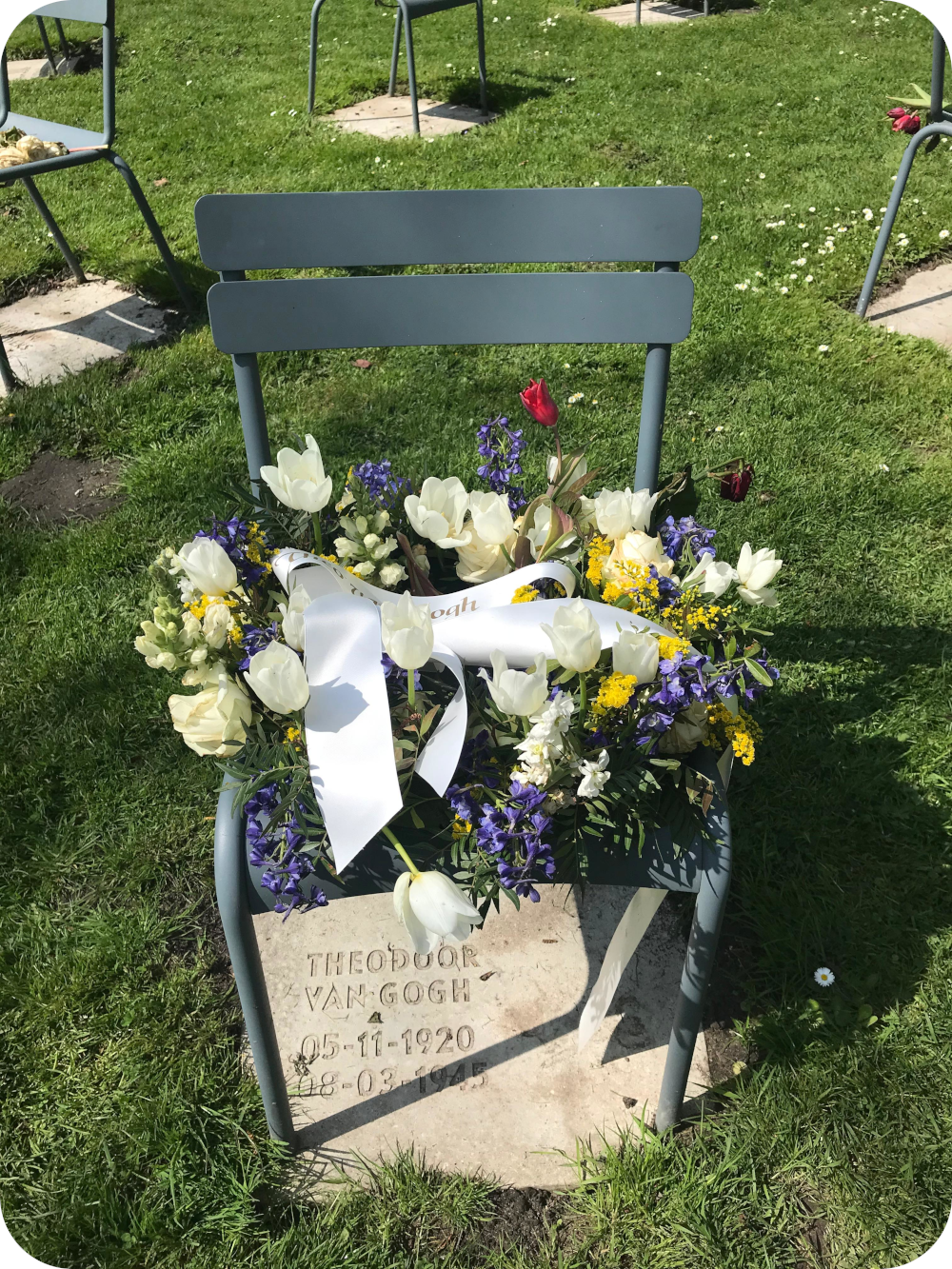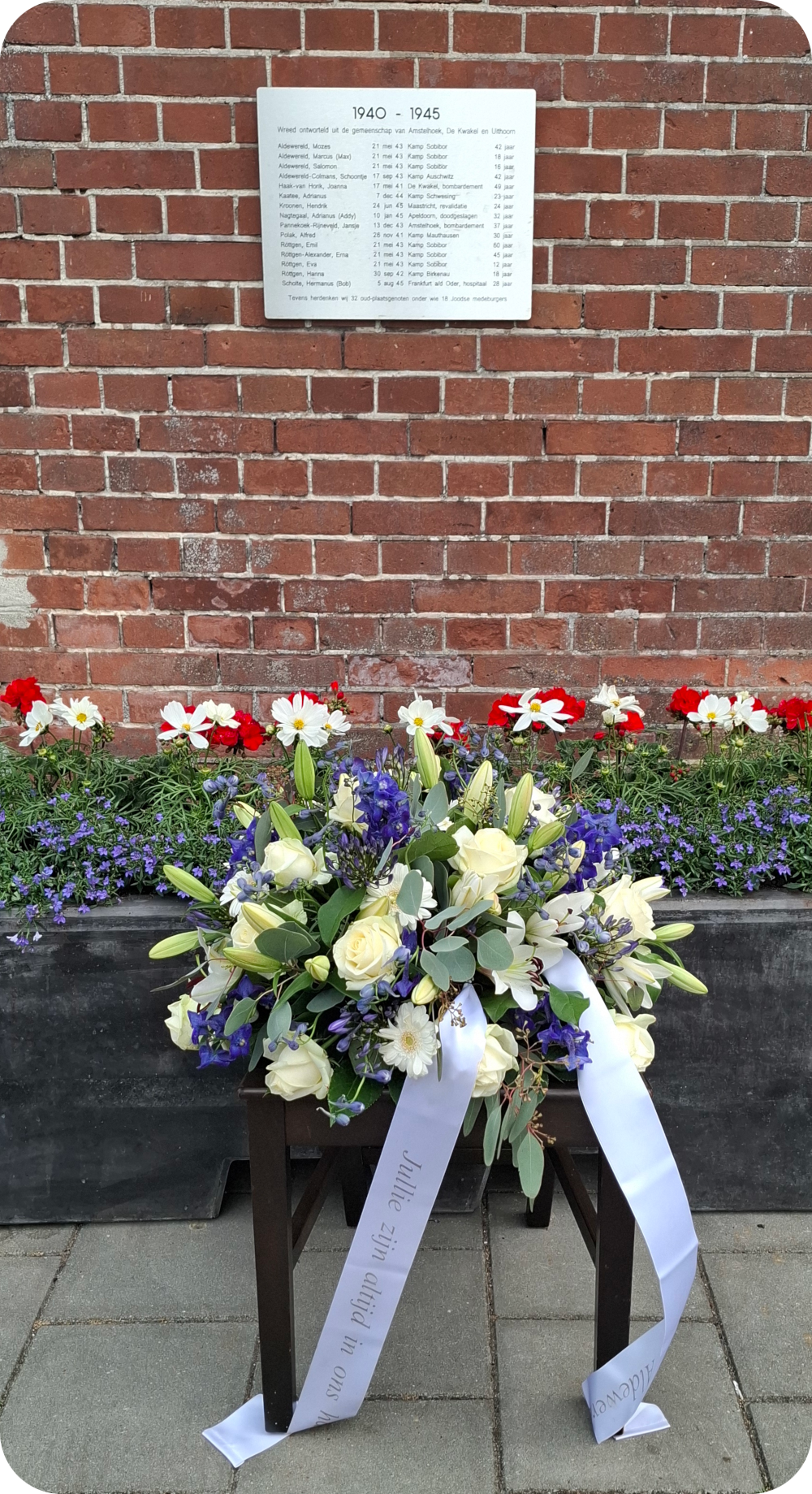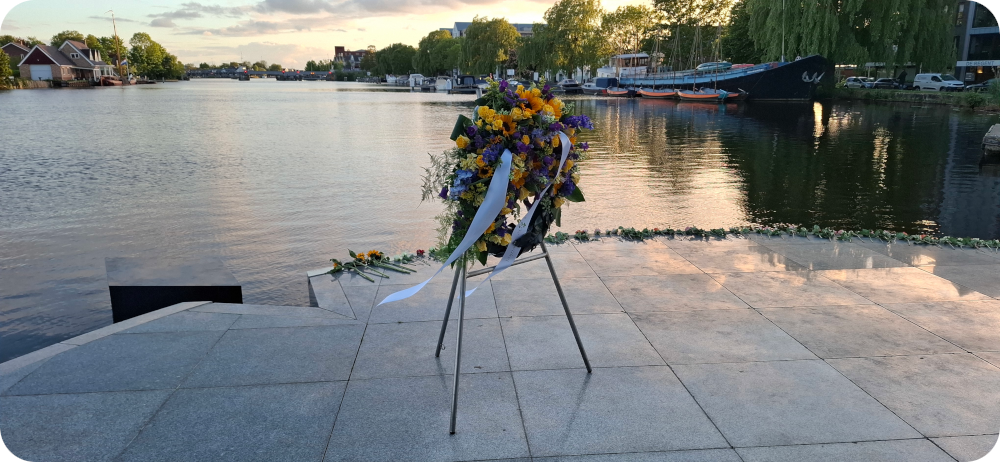|
|
I am posting this on the fifth of May, the day that marks the eightieth anniversary of the end of World War II in the Netherlands. At the time, the liberation was celebrated exuberantly in a country where much was destroyed.
Once the war in Asia was over as well, the Dutch lamented circa a quarter of a million casualties¹ in the Netherlands, Indonesia and the Netherlands Antilles. They were soldiers killed in action, civilian casualties, victims of concentration camps, people forced to work in war zones, hostages murdered in retaliations, merchant navy sailors, executed resistance members … the list is endless. The exact toll is not known, because records were lost, and many disappeared without a trace.
Every year on the fourth of May, the Netherlands commemorates its victims of war. At eight o’clock in the evening, the whole country respects two minutes of silence. A solemn ceremony is held in the center of Amsterdam where our monarchs together with many officials lay wreaths at the National Monument. It is an impressive and moving event, every time.
There are also many local events that day throughout our country. I remember my grandfather, who was in the resistance, attending the commemoration at the Waalsdorpervlakte, a quiet place in the dunes where more than two hundred and fifty resistance members were executed.
In Amsterdam, in a beautiful park, Monument Rozenoord commemorates another, nearby execution site. The monument, an initiative of residents, is a field with one hundred and six empty chairs, each with a stone mentioning the name of an identified victim. A single stone commemorates thirty-four unidentified persons.
Uithoorn, where I live, also organises a yearly commemoration at a monument on the riverside, next to the Thamerkerk church. At the former train station, now a restaurant, a plaque lists the names of local casualties. Many of those, among them families, were put on transport to perish in camps Sobibor, Auschwitz-Birkenau and Mauthausen.

|

|
|
|
|
One lesson from history is that we tend to rewrite, forget, and eventually repeat it. Most people living through the war as adults are no longer among us and their children are at an advanced age. To many of the new generations growing up after the war and the cold-war aftermath, war appears to be in the distant past. But I am confident they will stand up to defend our freedom and values, like their great-grandparents did. I just pray to God that such time will not come.

|
|
|
¹Source: NIOD Instituut voor Oorlogs-, Holocaust- en Genocidestudies
|
© 2002-2026 J.M. van der Veer (jmvdveer@xs4all.nl)
|